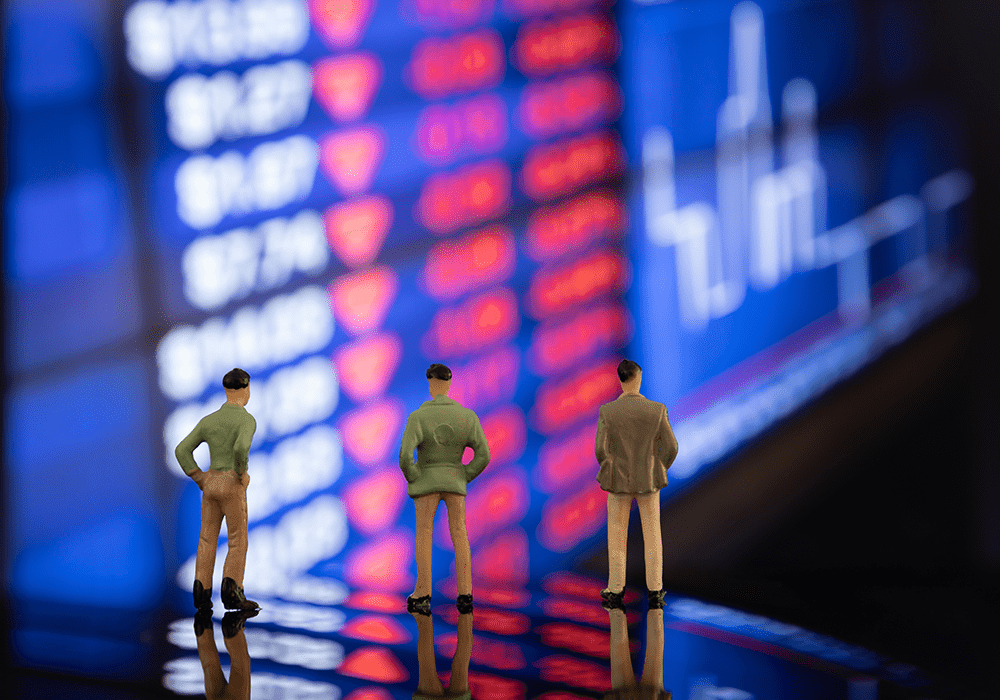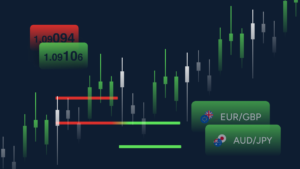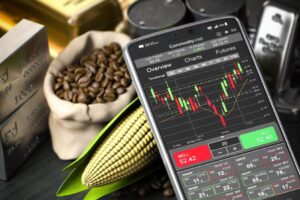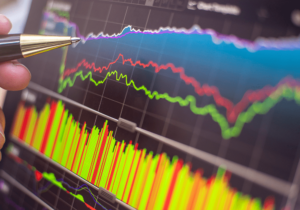Geopolitical events have a great influence on financial markets and can lead to huge volatility, which affects the prices of assets. From wars, political turmoil, trade disputes, and elections, these events introduce an element of surprise that might break up long- and short-term market trends.
As a trader, one must know how to navigate these geopolitical risks and minimize losses while seizing opportunities during times of uncertainty. In this article, we look at how geopolitical events affect the markets and also provide some practical strategies on how to manage those risks in your trading.

What is a Geopolitical Event, and Why Should It Matter to a Trader?
Geopolitical events are major occurrences in world politics such as changes of government, declarations of war, economic embargoes, trade pacts, and changes in policy. These might have significant implications for the global economy: from the valuation of currencies, the price of commodities, to the performance of stock markets.
Traders are sensitive to geopolitical events because these often bring about sudden changes in market sentiment, leading to sharp fluctuations in prices. For example, an unexpected political upheaval in a major oil-producing country raises the price of oil, while a trade war between two economic superpowers impacts stock markets and global trade.
Types of Geopolitical Events That Impact Markets
There are many types of geopolitical events the trader should be aware of. Here are some of the most common ones:
Wars and Conflicts
Armed conflicts and military confrontations can bring instability to the global markets. In cases of war or threats of military action between nations, investors tend to move toward haven assets such as gold, U.S. Treasuries, and the Swiss franc. Conversely, for countries involved, their stock markets and currencies may fall sharply due to the economic and human costs related to war.
Political Instability
Political instability, such as protests, coups, or changes in leadership, creates uncertainty over the future of a country’s economy. The loss of investor confidence due to political instability can lead to capital flight and currency depreciation. For example, a sudden change in government in a country richly endowed with natural resources may disrupt production and impact global commodity markets.
Elections and Political Shifts
Elections, particularly in large economies, have a great influence on market sentiment. Traders closely monitor political campaigns, as the result of elections can lead to changes in policies that affect economic conditions. For instance, a new government may introduce changes in taxes, trade policies, or fiscal spending that can impact the market. Uncertainty over election results can also lead to market volatility, especially when the outcome is contested or unexpected.
Trade Wars and Tariffs
Trade disputes between major economic powers have the potential to disrupt global supply chains and commodity prices, and have led to sharp fluctuations in currency and equity markets. Events that often involve the imposition of tariffs or sanctions can result in retaliatory responses in an escalating manner. For example, a trade war between the United States and China can make the global economy uncertain; such situations are associated with declining stock markets and altered currency valuations.
Economic Sanctions
Political intervention usually employs economic sanctions to hold back trade with a particular country or region. This may affect specific industries, companies, or individuals and bar them from achieving other markets around the world. The sanctions imposed may strike at the very heart of asset prices in those countries relying on exports to undergird their economy, or in situations where global financial systems are beyond reach. Sanctions on an important exporter of oil may also create spikes in world oil prices.
Natural Disasters and Environmental Events
While not always directly political, natural disasters like earthquakes, hurricanes, and floods can disrupt markets, especially in regions heavily reliant on certain industries. For instance, a hurricane striking the Gulf of Mexico may cause disruptions in oil production, leading to a rise in oil prices. Environmental events, such as climate change policies or severe weather events, can also have an impact on global markets by affecting agricultural production or supply chain logistics.

How Geopolitical Events Affect Market Sentiment and Price Movements
Geopolitical events often result in huge changes in market sentiment, which influence how traders view risk versus reward. Following are a few ways these events affect the markets:
Safe-Haven Assets
In times of geopolitical turmoil, investors move towards safe-haven assets or assets perceived as less risky during crisis periods. Examples include gold, U.S. government bonds, and the Swiss franc. During geopolitical events that raise market volatility, these assets have usually witnessed inflows and price increases. On the other hand, riskier assets like stocks, commodities, or emerging-market currencies may face sell-offs when investors are looking for stability.
Currency Fluctuations
Geopolitical events can send shockwaves in currency markets for countries directly related to an event. A country faced with political unrest or military action may have its currency weaken due to low investor confidence, while currencies of perceived safe-haven destinations appreciate as investors look for protection from risk.
Commodity Price Movements
Geopolitical events may greatly affect commodity prices, particularly for energy, precious metals, and agricultural produce. For instance, geopolitical tensions in the Middle East—a region that holds the majority of the world’s oil reserves—increase the price of oil because of the threat of supply disruption. A big trade dispute would also do the same to agricultural commodity prices if there is disrupted supply.
Stock Market Volatility
Political unrest, coupled with or separated by trade disagreements, always enhances global equity market volatility. Investors might turn into being risk-averse, leading to lower overall equity market exposure; therefore, many could record significant broad-market declines. But a few sectors also can gain from geopolitics. Defense company stocks usually increase on occasions of conflicts while the technology sectors have their shares hit in times of disputes on trades.
Interest Rate Movements
Most geopolitical events are met with monetary policy reactions from central banks, which may include rate changes or quantitative easing. Actions like these have an effect on market conditions globally, especially in the bond and currency markets. For example, if there is an economic downturn because of geopolitical tensions, central banks may try to lower interest rates, which will influence bond yields and investors’ psychology.
Strategies for Navigating Geopolitical Risks in Trading!
Geopolitical risk management is about how to protect your capital and make appropriate trading decisions during periods of uncertainty. Here are some geopolitical event navigation strategies for trading:
Stay Informed
The key to successfully treading through geopolitical risks is to be well informed about news and events around the world. Follow the news, political reports, and impending events such as elections, trade negotiations, or changes in policy. In this regard, being proactive will enable you to be ahead of potential market-moving events.
Diversify Your Portfolio
Diversification is one of the most effective means to decrease geopolitical risks. You expose yourself less to any one particular event by diversifying your portfolio across different classes of assets, sectors, and regions. As an example, if you feel political instability could affect one country’s economy, then you hedge yourself by investing in the economies of more stable economies or in safe-haven assets like gold.
Risk Management Tools
The geopolitical events bring unexpected spurts in price; hence, the establishment of a strong risk management system becomes vital. Put in stop-loss orders to reduce further losses and attain realistic profit targets. Besides, consider a position sizing technique to regulate how much capital you risk in every trade.
Track Volatility
Geopolitical events often create market volatility. Traders can use volatility indicators such as the VIX to measure uncertainty in the market. During periods of high volatility, it may be prudent to scale down your position size or refrain from entering new trades until the market normalizes.
Focus on Long-Term Trends
While short-term market movements that result from geopolitical events may be dramatic, a long-term perspective is important. Consider the likely long-term effect of the geopolitical event on the global economy and on market trends. More often than not, the market’s reaction to these events is short-term in nature, and long-term investors benefit by staying the course.
Consider Hedging Strategies
If traders want to get some hedge against geopolitical risks, hedging strategies are pretty good. In this case, they can apply options, futures, and other financial instruments in such a way that the potential losses from unfavorable geopolitical events get canceled out. Hedging can further secure one when markets are highly unpredictable.
Conclusion:
Geopolitical events are inevitable in any financial market around the world and can have a great effect on price movements. A trader should be well updated, understand how these events influence market sentiment, and put in place risk management strategies that protect one’s capital. You can navigate this uncertainty caused by geopolitical events and make informed trading decisions by diversifying your portfolio, monitoring volatility, and focusing on long-term trends.
While geopolitical risks can be daunting, they also present opportunities for those who are prepared. By understanding the forces at play and using strategies to mitigate risks, you can take advantage of the market movements that often accompany these events.
Table Of Content
- What is a Geopolitical Event, and Why Should It Matter to a Trader?
- Types of Geopolitical Events That Impact Markets
- Strategies for Navigating Geopolitical Risks in Trading!
- Conclusion:
Recent Posts
- Top 10 Commodities

- Top 5 Forex Trading Strategies for Consistent Profits in 2025 (All You Need to Know)

- Day Trading vs. Position Trading in Commodities: Which Strategy Works?

- Best Crypto Trading Strategy in 2025: Learn How to Trade Cryptocurrency in 5 Easy Steps!

- The Role of Technical Indicators in Trading: Enhancing Your Analysis


